Factsheet: Botanicals
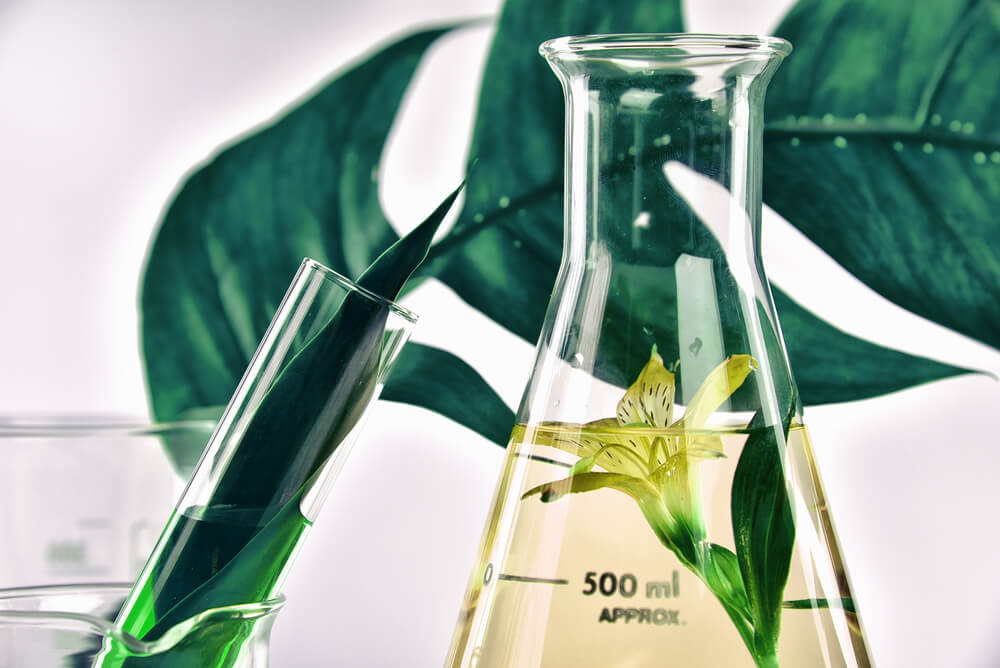
Botanicals are a term that you have probably heard quite a bit lately, and it is no surprise that they are once again having some time in the spotlight.
Why?
Because botanicals can do some truly incredible things for your skin…
What Exactly Are Botanicals?
A botanical is a substance that has been obtained from a plant. It can come from any part of the plant, whether this be from the root, the seeds, the flowers or the fruit.
Botanicals have been used for thousands of years, but modern science is now finally backing up the power that plants can have. In addition to being used in cosmetic and medicinal products, botanicals can also be consumed, so are now also being included in many foods and drinks.
Choosing Botanicals for Your Skin
When it comes to working out the best ingredients for your skin, you need to remember that everybody’s skin is different, so what works for someone else may not work for you.
So, how do you decide what your skin needs?
Your first step would be to determine your skin type. Skin tends to fall into one of these categories:
- Normal – a smooth and clear texture, with fine pores and no visible blemishes
- Oily – a thick and shiny complexion that is prone to blackheads and acne
- Dry – a tight and flaky complexion that is highly susceptible to fine lines and wrinkles
- Combination – a combination of the above on different parts of the face
- Sensitive – easily reactive to products and environmental triggers
Your skin type will change throughout your life, with everything from the climate to medications to dietary changes having an effect on this, so you do need to be consistently evaluating your skin.
Once you know your skin type, you then need to assess whether or not you have any skin conditions. These can include:
- Dehydration – visible fine lines and a tight feeling on the skin
- Hyperpigmentation/Sun Damage – shows up as dark spots on the skin
- Wrinkles/Fine Lines – a natural part of aging, but one that can be slowed down and prevented to quite an extent
- Acne – the result of clogged pores, and most prevalent on the face, back and chest
- Eczema/Psoriasis – red, itchy and cracked skin
- Rosacea – chronic swelling in the face, resulting in redness and visible blood vessels
Now that you have a better understanding of your skin, take a look at some of the different botanicals out there, as each one will have quite a different function.
The Most Important Botanicals For Your Skin
There are thousands and thousands of different botanicals out there, and, when it comes to cosmetics and medicinal products, these are often listed by their Latin name, so you do need to be aware of this when looking for certain ingredients.
Here are some of the most potent, skin-boosting botanicals out there:
Rose and Rosehip, a.k.a. Rosa Canina
Every part of the rose, from the petals to the seeds, are packed with antioxidants, in particular vitamins A, C, D and E. This botanical also contains essential fatty acids, giving it intense hydrating properties.
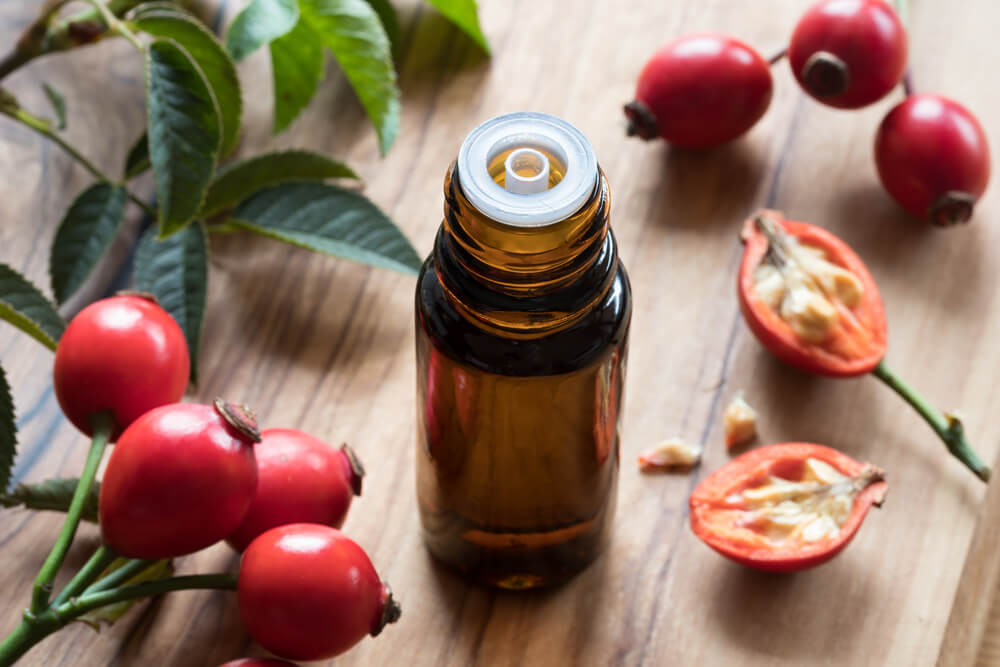
Who should use it?
Those who have dry or mature skin, as well as those with sensitive skin and inflammatory skin conditions, as rose extracts, as well as rosehip extracts, have strong anti-inflammatory properties. It is also thought to help with pigmentation, making it a great ingredient for fighting sun damage.
Feverfew, a.k.a. Tanacetum Parthenium
Related to the sunflower, feverfew is a herb with strong anti-inflammatory properties.
However, it does contain a compound called parthenolide, which can actually irritate the skin quite a bit.
How do you know whether or not the feverfew extract in your product contains parthenolide?
It should be listed on the ingredients as Feverfew PFE, which means that the parthenolide has been removed.
Who should use feverfew?
Those who are experiencing redness or are suffering from an inflammatory skin condition.
Echinacea, a.k.a. Echinacea Purpurea
Echinacea is a colorful herb that was commonly used by native Americans and early settlers. Today, it is often used as a natural cold remedy, but this botanical can really help with the skin too.
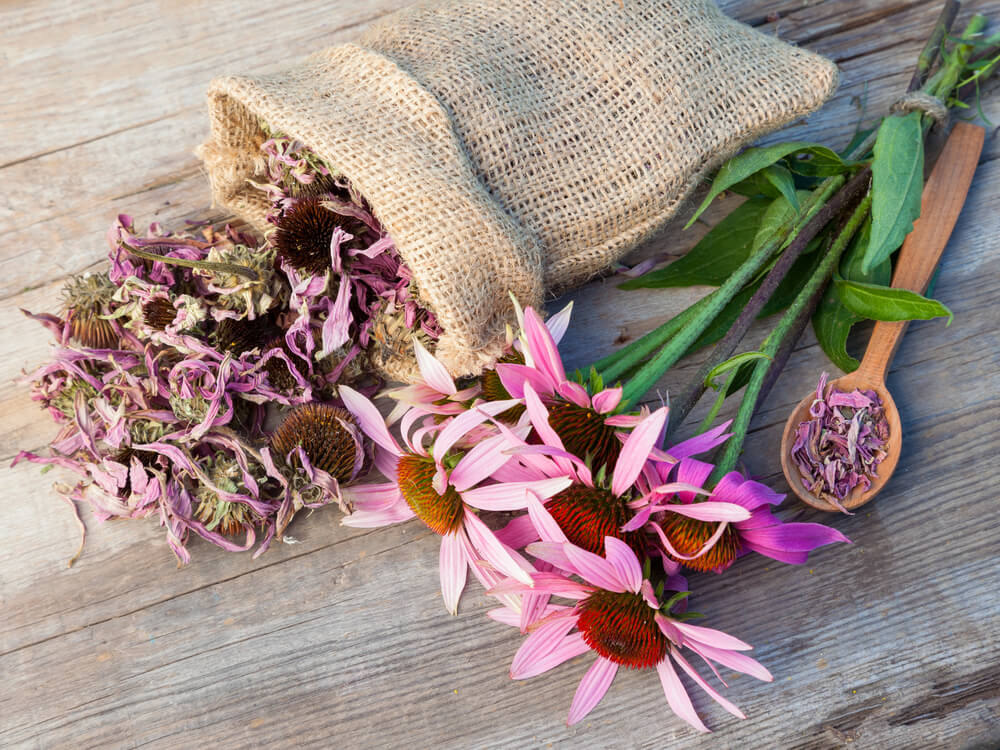
How?
It contains a substance called echinacein, which assists in the production of collagen within the skin, resulting in a smoother and firmer complexion.
It is also able to help with inflammation, and is effective at killing acne-causing bacteria, and bringing down any swelling.
Evening Primrose, a.k.a. Oenothera Biennis
A yellow wildflower that is native to North America, evening primrose usually comes in the form of an oil. One of its main benefits is the fact that it contains a fatty acid known as gamma-linolenic acid, or GLA. This has anti-inflammatory properties, and is extremely effective at keeping the skin hydrated.
These are a few of the skin issues that evening primrose has been shown to help with:
- Acne
- Dry skin
- Dull and tired skin
- Sun damage
- Eczema and psoriasis
- Rosacea
- Fine lines and wrinkles
Cornflower, a.k.a. Centaurea Cyanus
A deep blue wildflower, cornflowers have been used as far back as the ancient Greeks and Egyptians, for a variety of different ailments. They’re one of the best anti-inflammatory herbs around.
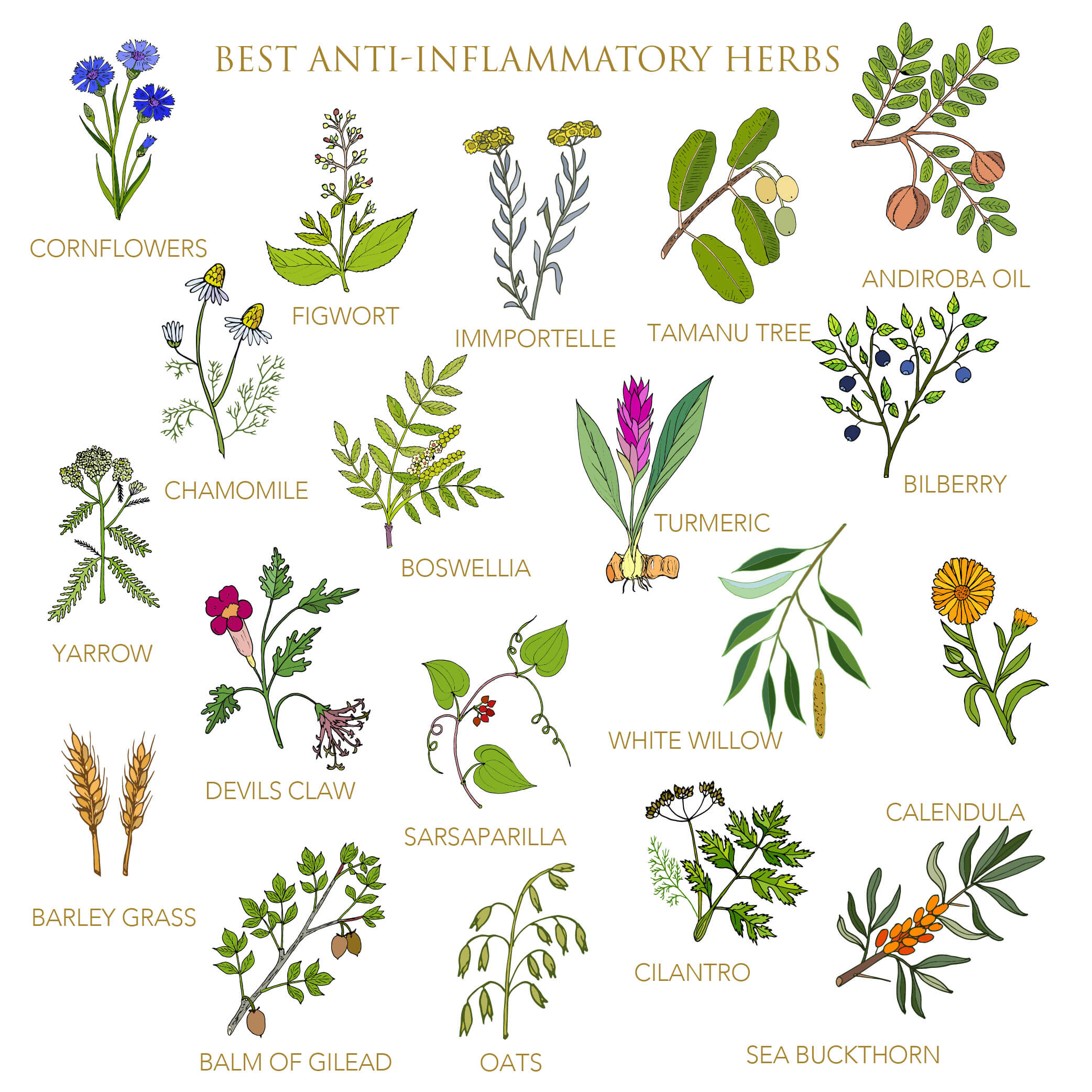
While they contain a number of different compounds, it is their anthocyanins that are the most important. These are a type of flavonoid with antioxidant properties, and have long since been used to help with the eyes.
Wondering how this relates to your skin?
Cornflowers can really help with puffy eyes, while also improving the skin tone around the eyes.
Chamomile, a.k.a. Matricaria Chamomilla
You have likely already heard of chamomile, as this herb is commonly used as a calming tea, to help induce sleep. However, chamomile actually has quite a few different properties, from being antibacterial and anti-fungal to antiseptic and anti-inflammatory.
This is a gentle herb that can be used by all skin types, as it gives the skin an overall boost.
However, for those looking to treat inflammatory conditions, burns, and skin damage, chamomile could prove to be especially useful.
Keep in mind that there are different varieties of chamomile out there…
German and Roman are the main two, so try to opt for German chamomile whenever possible, as this variety is more potent when it comes to the skin.
Soy, a.k.a. Glycine Max
There is quite a bit of research out there that supports the antioxidant and anticarcinogenic properties that soy has.
It is quite a potent botanical, and can have the following benefits for your skin:
- Reduces hyperpigmentation
- Enhances skin elasticity
- Moisturizes dry skin
- Decreases sun damage
- Prevents skin cancers
Licorice, a.k.a. Glycyrrhiza Glabra
The licorice plant is actually a legume, meaning that it is related to peas and beans, and it is the plant’s root that is most commonly used in botanical extracts. Licorice root is one of the best anti-viral herbs, ever!
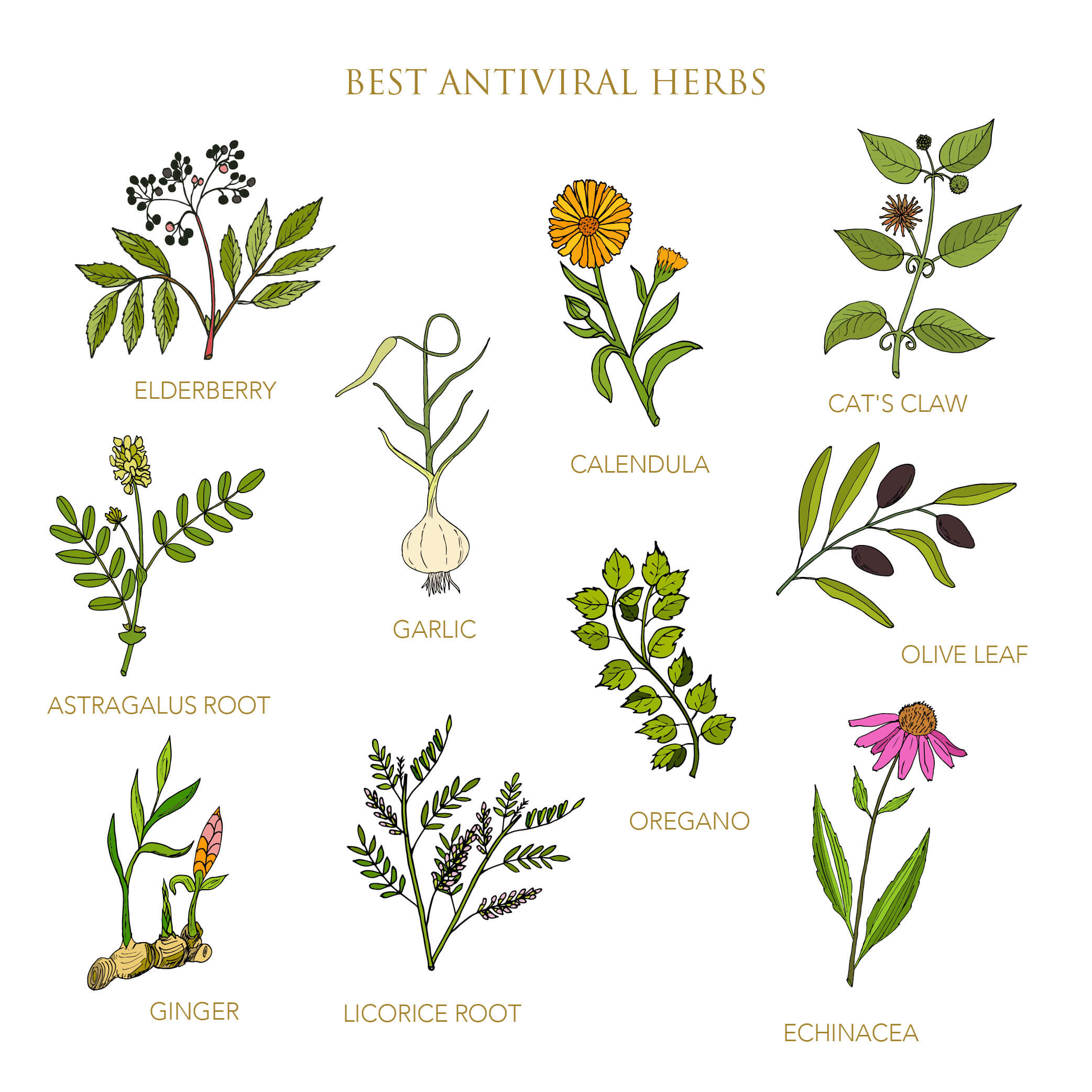
Licorice root contains a compound called glabridin, which can help with:
- Dark under-eye circles
- Skin discoloration
- Age and sun spots
It also contains a compound called licochalcone, which helps to regulate the skin’s oil production, making it a great ingredient for those with oily skin or acne to use.
Teas, a.k.a. Camellia Sinensis
While black tea and white tea also have fantastic properties, green tea seems to be the most powerful of them all.
Why?
Green tea contains complex polyphenolic compounds that really protect the skin. It is a botanical that can significantly reduce inflammation and oxidative stress, both of which are key factors in the aging process. As you can imagine, this makes green tea the perfect ingredient for mature skin, or those who are wanting to see some anti-aging results.
Green tea is also able to protect the skin from the sun. While it cannot replace your traditional sunscreen, it can definitely help to boost its effects.
Basil, a.k.a. Ocimum Basilicum
A fragrant herb that is often used in the kitchen, basil is actually great for your skin too.
If you suffer from acne…
You may be interested to know that basil is actually a much better astringent than alcohol, or even benzoyl peroxide.
What does this mean?
It means that basil is able to pull dirt and toxins out from your pores, while acting as an antiseptic to prevent the growth of bacteria. It is also able to help regulate oil production, which can often be the cause of breakouts.
Basil is also a great source of vitamins A, C and K, as well as several minerals, all of which directly benefit the skin.
Mint, a.k.a. Lamiaceae
Mint is another herb that has so many culinary uses, but its skin benefits have been scientifically proven too.
This botanical contains high levels of salicylic acid, an ingredient commonly used in anti-acne products. This gives it a natural exfoliating effect, but in a gentle, rather than abrasive way.
Who should use mint?
Those who have oily skin or acne, because it can help to reduce bacteria on the skin, and therefore minimize breakouts.
Botanicals that come from seeds are actually amongst the most potent of them all.
Wondering why?
Because a seed contains everything that a plant needs in order to grow, meaning that all of the nutrition within it is extremely concentrated.
Daffodil, a.k.a. Narcissus
Each year after its flowers have bloomed in the spring, the daffodil flower bulb goes dormant, slowing down its creation of new cells. It is able to do this thanks to a compound called IBR-Dormin, which can have a similar effect on human skin too.
What does this help with?
It can make a huge difference to dry skin, because those suffering from dry skin have skin cells that form too quickly, meaning that they do not have time to absorb all of the moisture that they need as they grow.
By slowing down the rate at which new skin cells develop, daffodils are able to really help to normalize dry skin.
Neem, a.k.a. Azadirachta Indica
It is usually oil that is extracted from the neem tree, and this oil contains a number of different skin-boosting compounds.
Here are a few of the issues that neem oil can help with:
- Acne breakouts
- Acne scars
- Inflammation
- Eczema
- Psoriasis
- Lack of elasticity
Aloe Vera, a.k.a. Aloe Barbadensis Miller
You are likely already well aware of the fact that aloe vera is great for the skin, but do you know why?
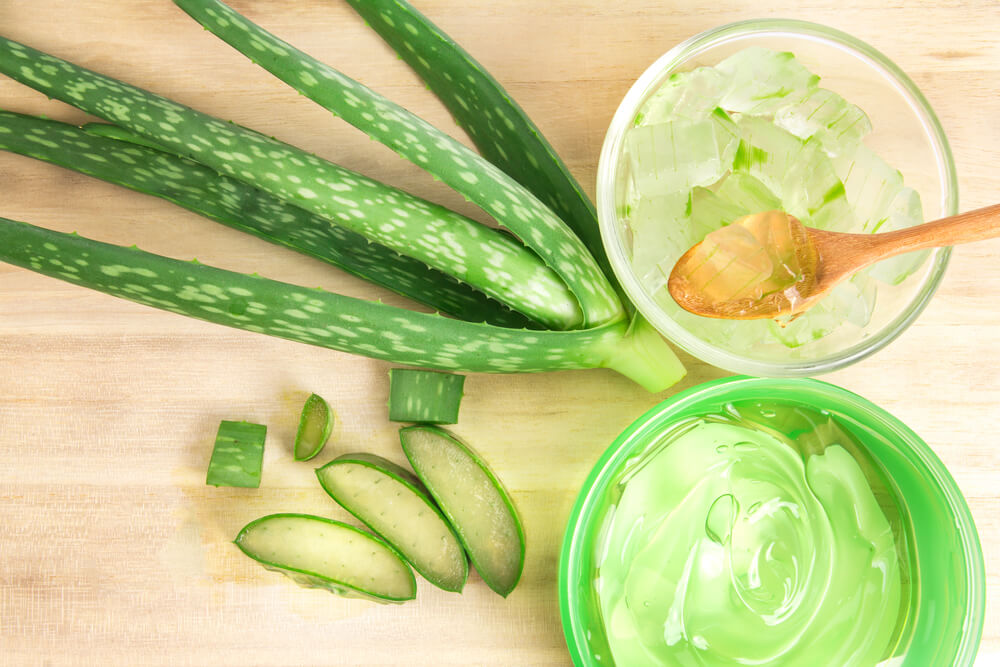
Aloe vera gel actually contains two hormones, known as Auxin and Gibberellins. These hormones, as well as the plant’s many other compounds, affect the skin in a few different ways:
- Treats sunburn
- Moisturizes the skin
- Treats acne
- Fights aging
- Reduces stress marks
Aloe vera is extremely gentle, meaning that it can be used by all skin types.
What About Botanical Dietary Supplements?
While using botanicals topically on your skin means that your skin will be able to directly benefit from them, taking them internally can have some great effects on your skin too, as well as your overall health.
While this may be the case, keep in mind that botanical dietary supplements are not standardized in the USA.
What does this mean?
It means that it can be extremely difficult to determine a supplement’s quality.
However, this does not mean that you need to ignore the power that botanicals have.
There are many ways in which you yourself can include more botanicals in your diet, from making teas from dried leaves to using more fresh herbs and plants when cooking.
Do you currently use any botanicals in your skin care routine?
If not, this is something you may want to consider doing. As you can see from above, botanicals are so powerful, and can often have a greater effect than synthetic alternatives. Do keep in mind that botanicals can also be quite temperamental ingredients, so you will need to store your products in a dark and dry place, and replace them more regularly than you would replace products without botanicals.

